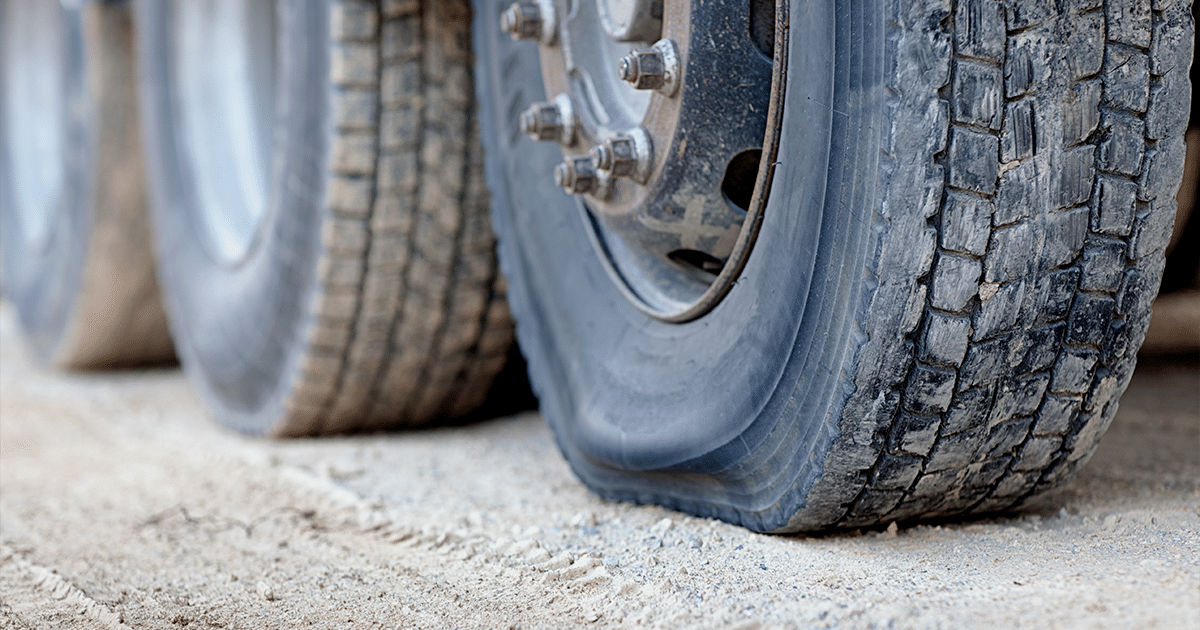When a truck blows a tire, debris can scatter across the road as the truck driver struggles to maintain control. For drivers of nearby, smaller vehicles, these twin hazards frequently lead to secondary accidents that can inflict severe and even fatal injuries. Survivors of such accidents need to know that the law provides them with options for receiving compensation for their injuries. By working with experienced truck accident lawyers, drivers who get injured in a truck tire blowout crash can often secure significant compensation for their losses.
Causes and Dangers of Truck Tire Blowout Accidents
Truck tires are built to withstand a lot of wear and tear. They’re built to carry very heavy loads of freight and undergo stress from the frequent exposure to high temperatures caused by pavement friction. Trailers, in particular, absorb far more road surface impact than a vehicle with a suspension tuned for passenger comfort.
Because of these unique demands, truckers and their employers have a duty to inspect their trucks constantly, swap out worn tires, and abide by tire tread regulations and truck weight limits. Although properly maintained truck tires can sometimes blow out even when all regulations are being followed, many blowouts are preventable. Often, blowouts occur when trucking companies ignore tires with low tread or pressure, load trailers beyond their permissible weight limit, and fail to train drivers on how to respond safely to a blown tire. Preventable blowouts can also occur because of defective tires or unreasonably hazardous road conditions.
Whatever the cause of a blown truck tire, this scenario can pose an immediate and significant danger to other motorists. A blowout often scatters heavy debris—a combination of rubber and steel-lined tread—through the air and across the road. Tire chunks can pierce a windshield or get caught up in a car axle, causing a loss of control and even an additional vehicle crash. Dangerous accidents can also occur when drivers take evasive maneuvers to avoid tire debris from a blowout or when the blowout causes the truck driver to lose control, sending the big rig jackknifing, rolling over, or colliding with other vehicles. Any one of these types of accidents has the potential to cause catastrophic or fatal injuries to the drivers and passengers involved.
Liability and Damages for Truck Tire Blowout Accidents
As an injured survivor of a tire blowout truck crash, by law, you have the right to seek compensation for your losses. Below is an overview of who might owe you damages and what you could recover.
Who is Liable?
Anyone whose careless, reckless, or intentional actions led to a truck tire blowout accident may be liable for damages. Under Kentucky law, multiple individuals, businesses, or organizations could owe compensation for a blowout crash. Some examples include:
- Truck drivers who failed to properly inspect the tires on their truck before a trip
- Drivers who reacted improperly to a sudden tire blowout and caused chain reaction crashes
- Trucking companies that weren’t following tire maintenance or truck weight regulations
- Manufacturers of defective truck tires
Negligent road agencies or contractors who created an unreasonably hazardous road condition. These are just some examples. Every truck blowout crash is a unique circumstance. Holding a party (or parties) liable for a blowout accident requires investigating the specific facts and understanding the events that led to the collision and injuries.
What Damages Are Recoverable?
Under Kentucky law, you generally have the right to demand compensation from liable parties for the physical, emotional, and financial harm you suffered as a result of the truck tire blowout accident. This can include compensation for:
- Medical costs and other accident or injury-related expenses
- Vehicle and property damage
- Loss of income and future earning opportunities
- Physical pain and discomfort
- Emotional suffering
- Diminished quality of life
- Scarring, disfigurement, or loss of bodily function
You may also have the right to demand punitive damages from an at-fault party. And if your loved one tragically died in the accident in question, you may have the option of seeking wrongful death damages that can include compensation for the loss of that person’s income, support, companionship, guidance, and consortium, among other losses.
Hiring a Louisville Truck Accident Lawyer
Working with a team of experienced truck accident lawyers in Louisville is the most reliable way to secure fair compensation if you’ve been injured in a Kentucky truck tire blowout accident. A knowledgeable personal injury lawyer can review your case, answer questions, and explain your options. Attorneys can collect evidence to prove who was at fault and how much you deserve in damages. They can also prepare insurance claims and court filings on your behalf, negotiate settlements, and take your case to trial when necessary to get a fair outcome.
The sooner you contact a Louisville truck accident attorney, the better your chances of securing the money you need to pay your bills and move on with your life. When selecting a lawyer, be sure you choose someone with a familiarity with the trucking industry, an understanding of truck regulations, and resources to move quickly and thoroughly during the process of building a solid case. Any lawyer you hire should also have a track record of getting results for other truck tire blowout accident survivors like you.
Call Our Experienced Truck Accident Lawyers at Sam Aguiar
If you sustained injuries in a Kentucky truck tire blowout accident, the Louisville truck accident lawyers at Sam Aguiar Injury Lawyers want to help you get the compensation you deserve. We have years of experience fighting on behalf of injured truck accident survivors. Contact us today for a free consultation with a knowledgeable legal professional who can explain your rights and options.
